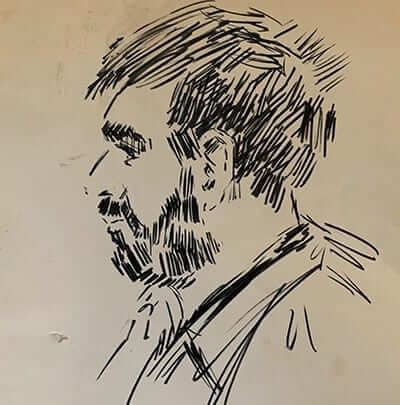Behind threads of steel, behind horizontal webs of chain-link fencing, behind diamond patterns of rust lie the remains of captured prey. Beyond the architecture of decay, beyond the concentration of factories and warehouses at the center, row houses and schoolhouses line the radials. Houses of worship fill the gaps, not the void, because icons of faith cease to shine. Gone are the celebrants, the congregants, the candles, the chalice, and the cross. Such is life after the death of work, where corporations are supreme and CEOs infallible.
While we can assign blame to the way machine politicians apportion power, rationing what is not theirs to give in the first place, rewarding committeemen and captains with no role save the operation of the machine, we must not ignore the influence of politics on the closure of the factories and the shutdown of the machines.
The politics of bigness governs this environment, where corporations have all the rights of people and none of the responsibilities of citizens, where bigness casts a giant shadow at the expense of those in the shadows, where bigness blocks the light of truth and the disinfectant of sunlight.
In turning brothers of a common country into enemies in a land without the bonds of fraternal feeling, the victor is the biggest and worst possible brother. Whether the victor is big tech or big business, whether the vanquished is big labor or big government, bigness is the problem.
Bigness is the power of technology, business, and labor to quash dissent, or the power of government to squash dissidents: pulverizing flesh like papier-mâché effigies of democracy. Bigness is a police state—with advertising.
Bigness of this kind attracts followers, not freethinkers, where the Word is silent but the warning is ubiquitous. That the warning stamps hypocrisy with irony, that the warning symbolizes a bitten apple, that this symbol adorns 510 glasshouses in 25 countries, that the white light of Apple distracts consumers from the darkness of reality is a cosmic joke.
The joke is also an ungrammatical injunction (“Think Different”) to look like a thinker without acting like one. Among the poor, however, the joke is not funny.
Unable to afford the high-definition opiates of big tech, the poor resort to the opioids of big pharma. The result is dependency in lieu of welfare, and destitution at the expense of the general welfare, killing lives—killing veterans of foreign wars and combatants to foreign competition—with painkillers.
The drugs may fog the mind, but they do not fool the eyes.
No hallucinogen can beautify the blight caused by a bad deal, where the price of service is summary dismissal and the cost of loyalty is abandonment.
If corporations think this deal is fair, if they think this cost is not only reasonable but a necessary cost of doing business, they should have their emissaries—their brand ambassadors—attend a military funeral, for after the firing of three volleys and the sound of the bugler’s cry, after a member of the Honor Guard kneels before the next of kin, a family receives a symbol of appreciation.
A grateful nation presents a flag, not coupons or gift cards.
If corporations want respect, they must treat their workers better than casualties of war.

